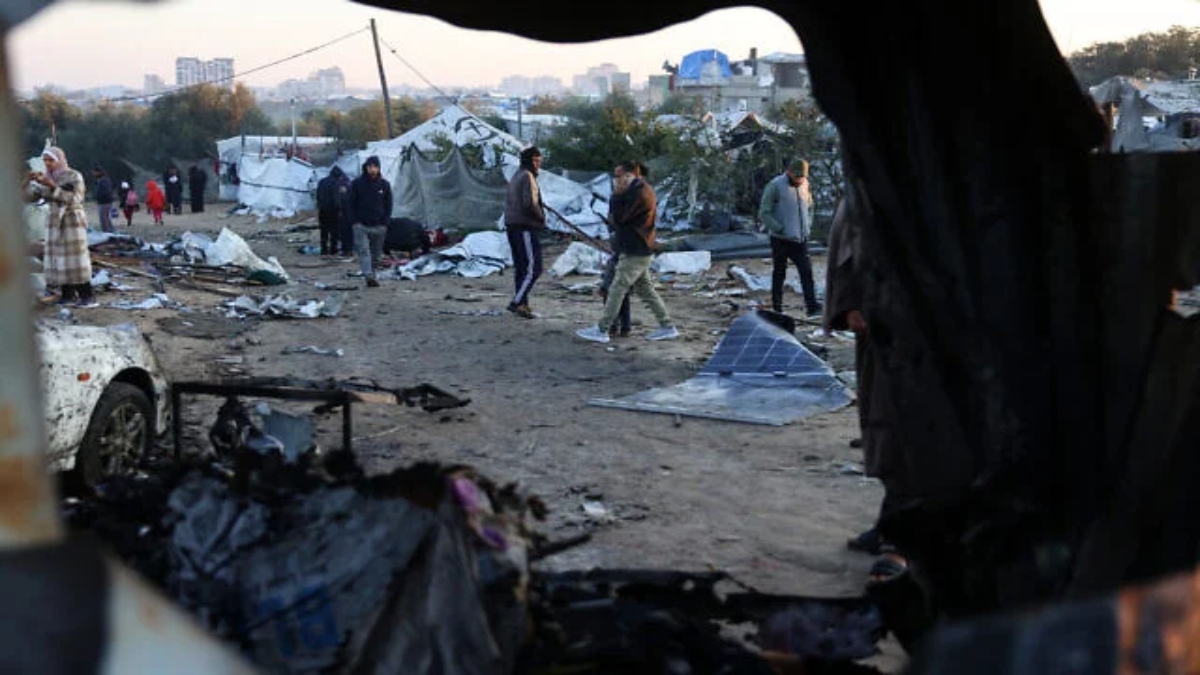) |
|
Donald Trump's recent proposal to “clean out” Gaza and relocate its population to other Arab nations has ignited a firestorm of controversy. His suggestion, made on January 26th, 2024, disregarded the estimated 2.4 million residents of Gaza, instead stating a figure of 1.5 million. This inaccurate estimation, coupled with the callous nature of the proposal, has drawn sharp criticism from Palestinian groups, regional leaders, and international organizations. The sheer insensitivity of suggesting the displacement of an entire population, echoing the historical trauma of the 1948 Nakba, where hundreds of thousands of Palestinians were dispossessed of their homes during the creation of Israel, is a major point of contention. This proposal is not just a logistical challenge; it is a deeply emotional issue that cuts to the core of Palestinian identity and historical experience. The emotional weight of such a suggestion cannot be underestimated, particularly given the ongoing conflict and the ongoing fragility of the truce between Israel and Palestine.
Hamas and Islamic Jihad, the dominant forces in Gaza, have vehemently rejected Trump's plan, deeming it an attack on Palestinian sovereignty and a cynical attempt to divert attention from the complexities of the ongoing conflict. Their opposition highlights the deep-seated mistrust towards external interventions that often disregard the voices and needs of the Palestinian people. The statement by a far-right Israeli minister praising Trump's idea underscores the deeply polarized nature of the conflict and the existence of factions within Israel that view such a drastic, and potentially inhumane, solution as viable. This response underlines the deep-seated divisions and lack of trust that exist between the involved parties, making any form of peaceful resolution all the more challenging. The absence of an immediate response from Israeli Prime Minister Benjamin Netanyahu, while noteworthy, does little to diffuse the tension surrounding Trump's inflammatory comments.
The international community has largely expressed concern and opposition to Trump's proposal. Egypt and Jordan, both with significant Palestinian refugee populations, have historically opposed any mass displacement of Palestinians, citing the potential for regional instability and the violation of international humanitarian law. Egypt's peace treaty with Israel is another significant factor considered, highlighting the intricate geopolitical implications of such a plan. Jordan's already substantial burden of hosting Palestinian refugees further underscores the impracticality and potential consequences of such a massive relocation. UN officials, including UN aid chief Martin Griffiths, have described the proposal as an “illusion,” emphasizing its infeasibility and potential for exacerbating the already dire humanitarian situation in Gaza. The logistical, financial, and humanitarian challenges inherent in such a scheme are staggering, rendering it practically impossible to execute.
Beyond the immediate outcry, Trump's proposal raises broader questions about the ongoing Israeli-Palestinian conflict and the international community's role in resolving it. The recent truce and hostage-prisoner exchanges, while offering a glimmer of hope, have underscored the delicate balance and underlying tensions. The disruption caused by disputes over the return of Palestinians to northern Gaza after the prisoner swap highlights the fragility of the peace and the persistence of underlying issues. Trump's comments inject a potentially explosive element into an already volatile situation, threatening to undermine any progress made in peace efforts. The proposal exposes the deeply embedded mistrust between parties and the lack of a comprehensive approach to addressing the root causes of the conflict. A sustainable resolution must involve engaging with the complex realities on the ground, addressing the historical grievances and addressing the legitimate aspirations of all involved parties, rather than employing simplistic and potentially catastrophic solutions.
In conclusion, Donald Trump’s proposal to relocate the population of Gaza represents a dangerous escalation of rhetoric that disregards the humanitarian crisis, the historical context, and the geopolitical realities of the region. It underscores the urgent need for a comprehensive, inclusive, and internationally supported approach to resolving the Israeli-Palestinian conflict, one that respects international law, prioritizes human rights, and addresses the underlying causes of this enduring conflict. Ignoring the deep-seated issues and the historical trauma of the Palestinian people will only fuel further conflict and violence, delaying the possibility of a lasting and equitable peace.
Source: Hamas, Islamic Jihad slam Trump's proposal to 'clean out' Gaza, move residents to Arab nations
